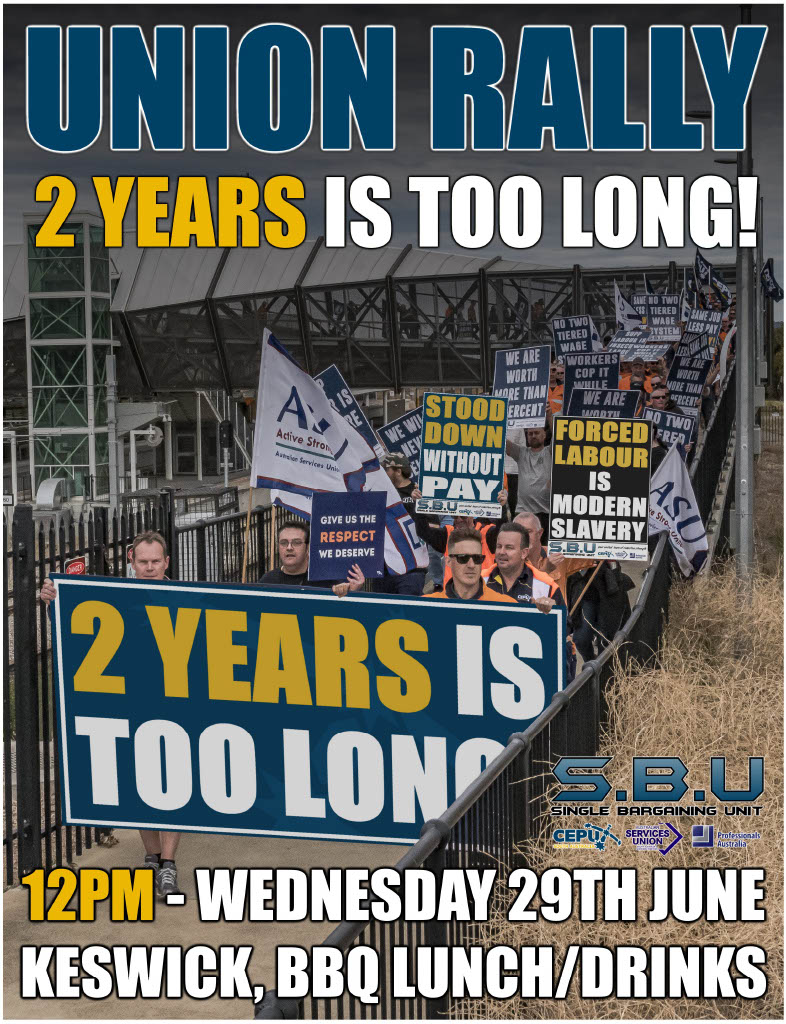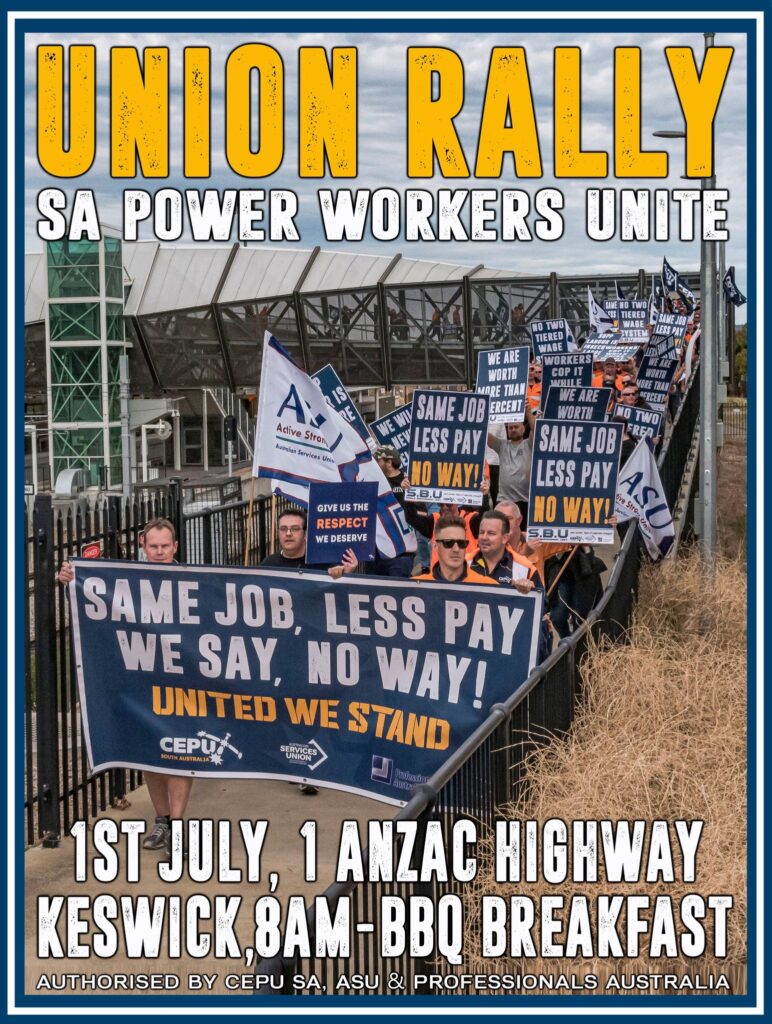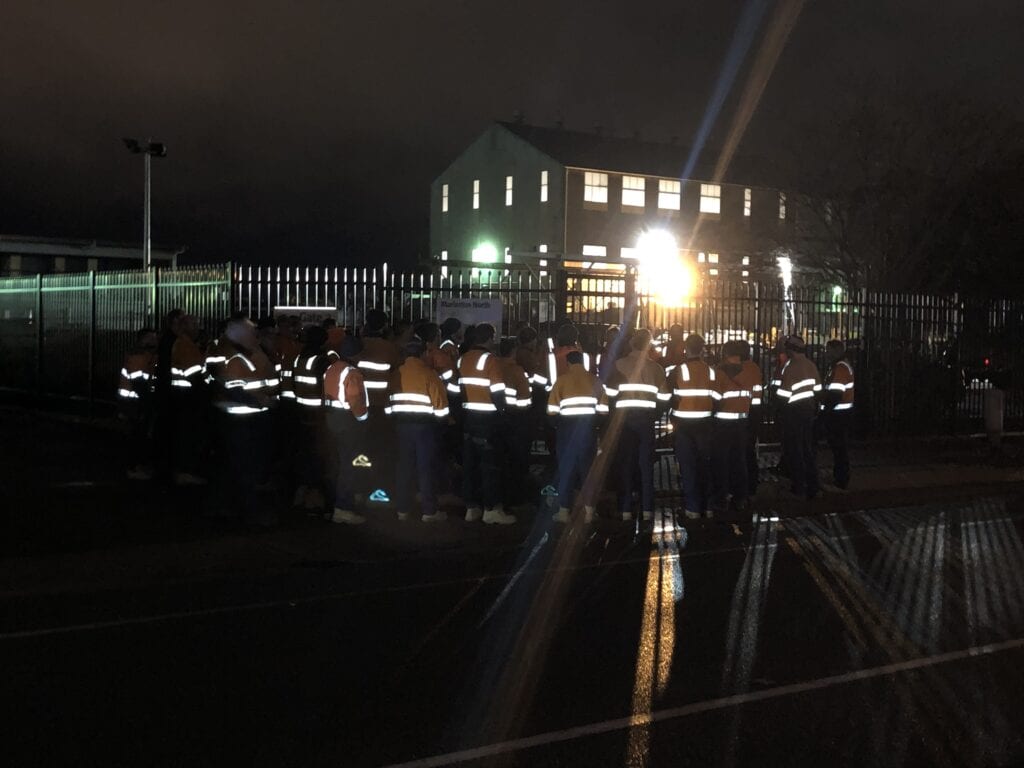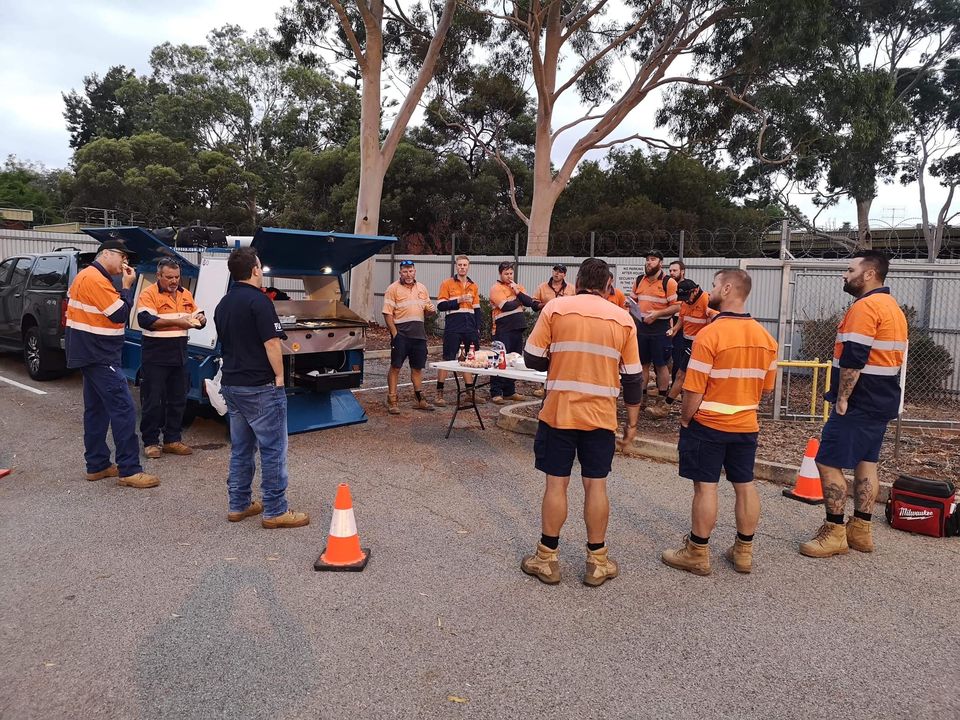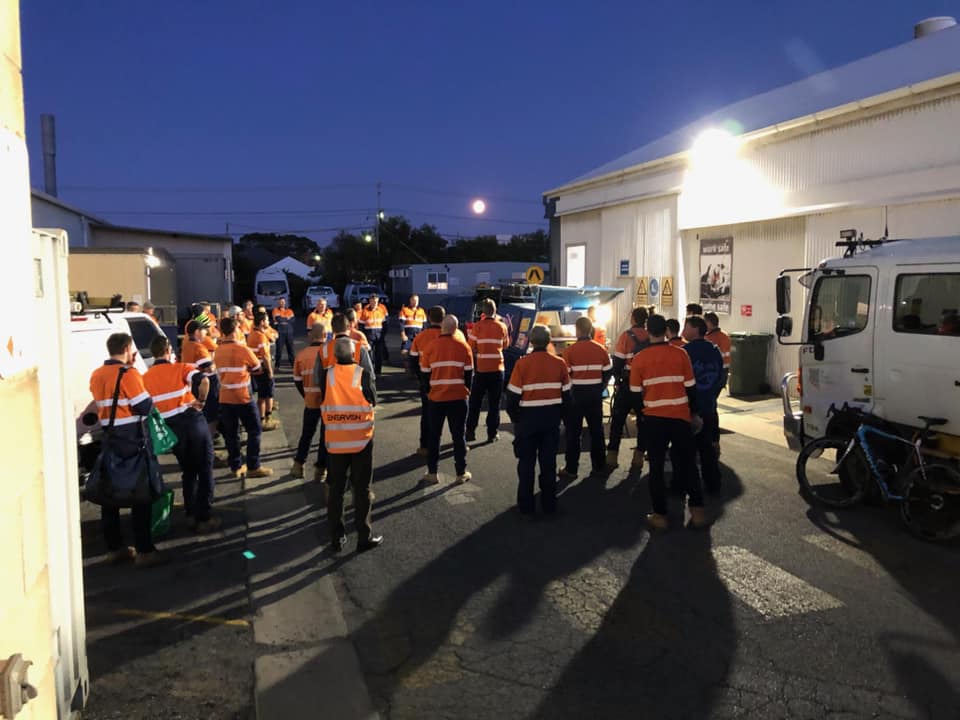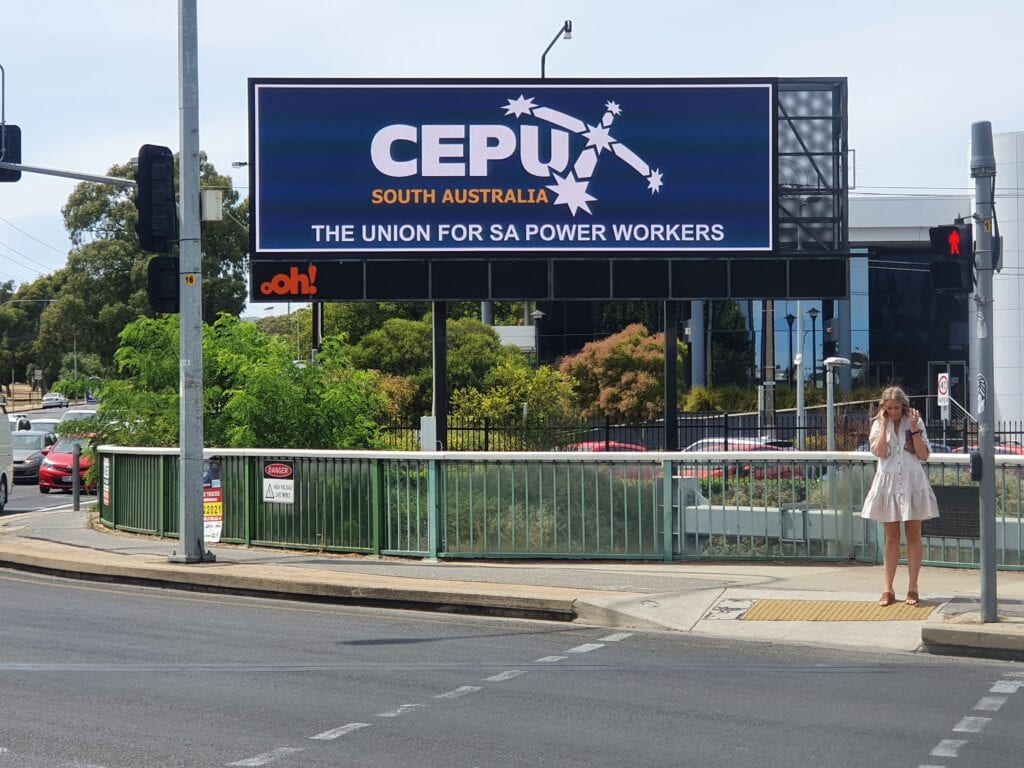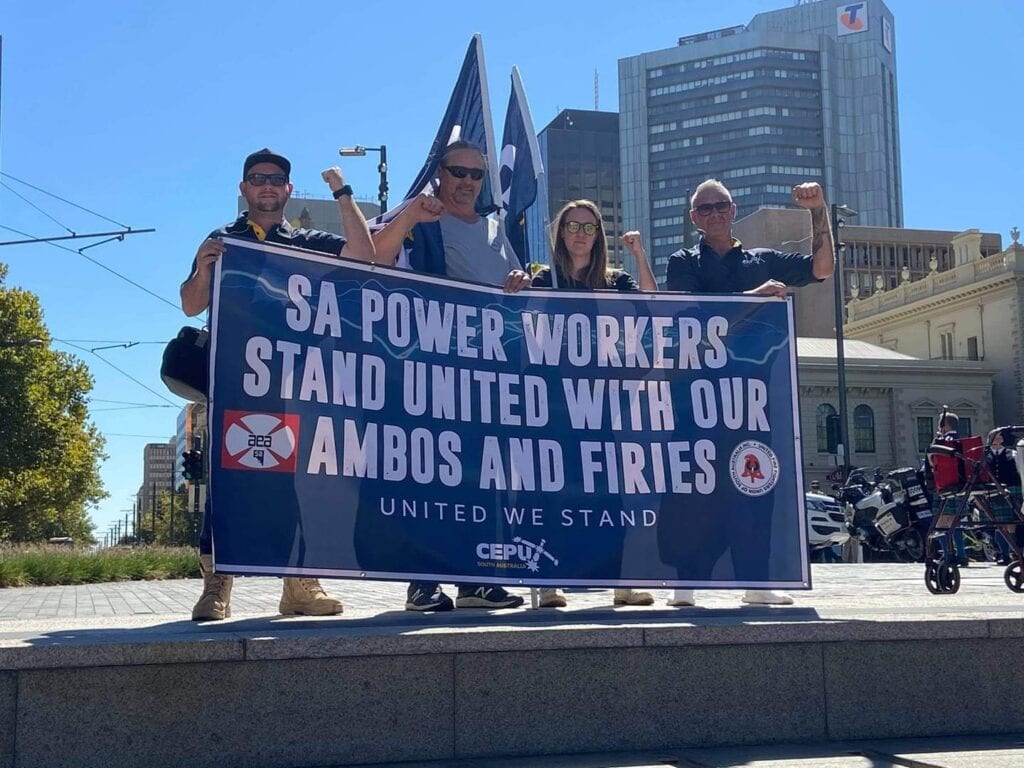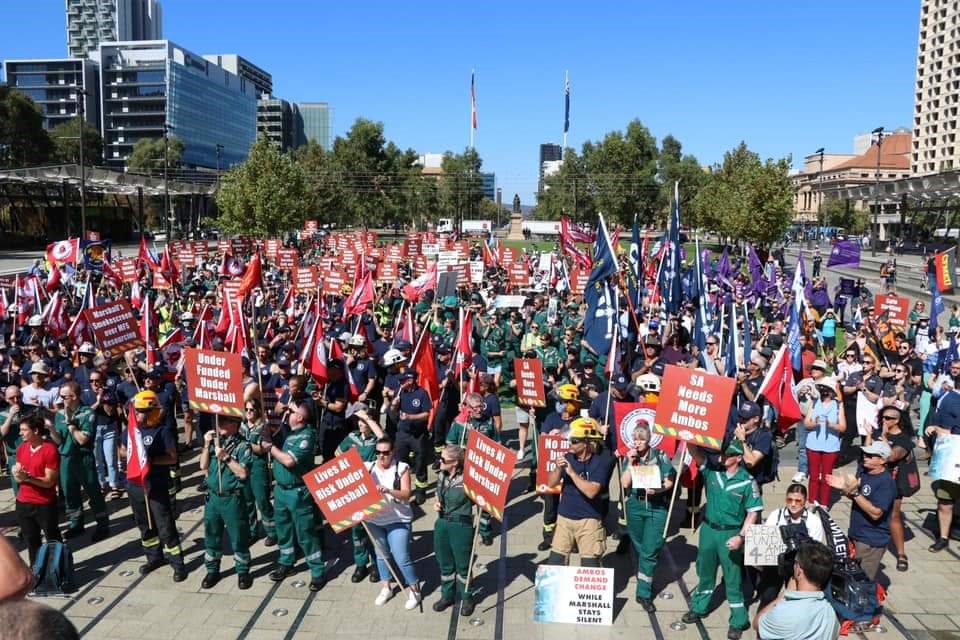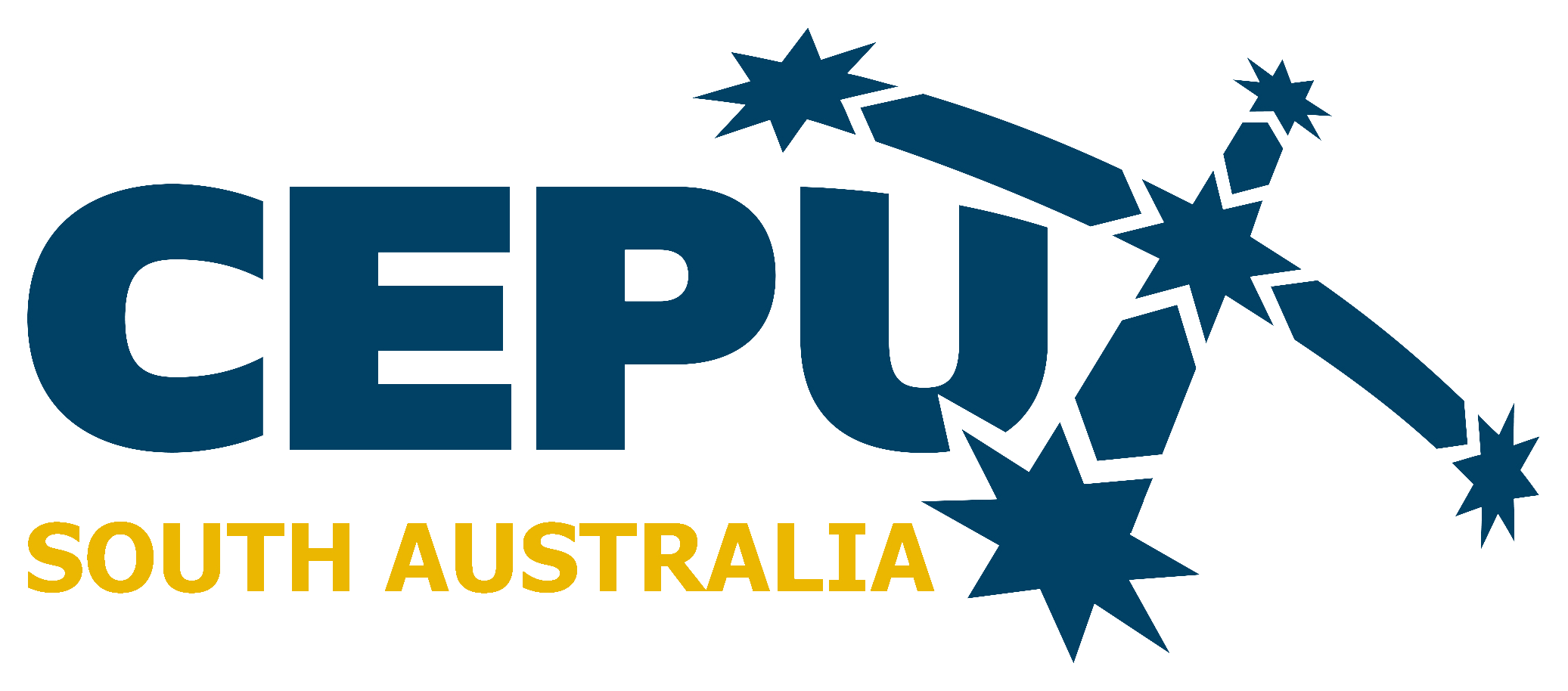SA Power Workers –
SA Power Workers
The Story So Far
The Unions representing workers at SA Power Networks and Enerven form a Single Bargaining Unit (SBU) made up of the Communications Electrical and Plumbing Union (CEPU) the Australian Services Union (ASU), Professionals Australia and the Australian Manufacturing Workers Union AMWU.
SA Power Networks and Enerven workers are covered under the same enterprise agreement and are employed by the same corporate entity, Utilities Management Pty Ltd.
The SBU has been attempting to bargain with Utilities Management Pty Ltd since early 2020 to reach a new fair and reasonable enterprise agreement.
UMPL have unsuccessfully put a proposed EA to a vote of employees, that is not supported by the SBU, on three previous occasions and is currently attempting this for a fourth time.
The enterprise agreement(s) being proposed by the company fail to protect and improve the wages, conditions and employment security of UMPL employees.
For the first time in over a decade, UMPL employees have resorted to Protected Industrial Action commencing in April 2021. Ongoing industrial action has been taken by UMPL workers across South Australia. Resolution to the dispute remains unlikely whilst UMPL maintains its current approach to bargaining.
As a consequence of the protracted industrial dispute, SA Power Networks is now $100 Million behind in its programmed maintenance schedule. If this situation is allowed to continue it has the potential to increase risks to the safety and reliability of the South Australian electricity distribution network, and therefore the security of supply of electricity to South Australian homes and businesses.
This dispute represents a failure of UMPL management to meet its responsibilities to its employees, shareholders and customers to have a proper enterprise agreement in place to ensure industrial stability.
The integrated South Australian electrical infrastructure system (Generation, Transmission and Distribution) was privatised in 1999 by the Olsen Liberal government (despite a pre-election pledge not to do so) and broken up into separate parts. The Electrical Distribution Network Service Provider (DNSP) in South Australia is now SA Power Networks (SAPN).
SAPN is owned by Utilities Management Pty Ltd (UMPL) which is a foreign owned private company that operates the South Australian electricity distribution network under a 199 year lease arrangement with the South Australian Government.
UMPL is in turn jointly owned by Hong Kong based utilities company Chung Kong Infrastructure (CKI) and a consortium of venture capital company Kohlberg Kravis Roberts (KKR) and two large Canadian pension funds.
UMPL employs around 2200 employees in SA who are covered by the Utilities Management Pty Ltd Enterprise Agreement 2018. This agreement passed its nominal expiry date on 31 December 2020.
The SBU is currently engaged in a long running campaign for a new Enterprise Agreement (EA) that protects and improves the terms and conditions of employment for our members. This campaign commenced on the 26 June 2020.
In January 2021 UMPL unilaterally declared that “bargaining had ceased”. The unions had to apply for bargaining orders to compel UMPL to recommence negotiations.
On 23 February 2021 the SBU applied to the FWC for a Protected Action Ballot, which was approved despite UMPL opposing the application. Protected industrial action commenced in April 2021. UMPL employees have continued to take protected industrial action across South Australia, despite UMPL applying to the Fair Work Commission to terminate the industrial action.
In late 2021 UMPL issued a second Notice of Employee Representational Rights and unilaterally declared that they would bargain for two enterprise agreements, one for UMPL employees engaged at SAPN and one for UMPL employees engaged at Enerven.
The SBU lodged a Scope Order Application with the Fair Work Commission seeking that one agreement should cover all UMPL (SAPN and Enerven). The FWC issued a decision on the 23 December 2021 finding in favour of UMPL. The SBU appealed to the full bench of the FWC which handed down a decision on 25 March 2022 overturning DP Andersons decision and finding in favour of the SBU.
Despite the full bench decision, UMPL have continued to pursue separate agreements for UMPL employees and maintain that, if two separate agreements were approved, they could continue at their sole discretion to move employees from SAPN to Enerven and vice versa. This outcome would have the effect that employees who vote to accept a proposed SAPN agreement could find themselves moved onto an Enerven agreement, which they did not get to vote on, with different terms and conditions and visa versa for Enerven employees.
The industrial dispute has escalated and is affecting the performance of asset replacement measure which is the worst in the National Electricity Market by a factor of 5. SAPN is currently $100M behind in their Regulatory Spend scheduled works programme.
UMPL have repeatedly stated that to further improve competitive advantage and profitability, a separate Enerven agreement is required so that lower pay grades can be instituted that would allow Enerven (a multinational and multibillion dollar company) to compete with “mum and dad” South Australian contracting companies.
UMPL dominating the contestable market at this level is anti-competitive and will force local companies out of business. We have already seen several distribution contracting businesses close in SA such as Electrical and Powerline Services, Lend Lease Distribution and Underground Cable Services.
This dispute has continued for 25 months and there is currently little prospect for resolution. The unions’ claims are modest and consistent with all reasonable expectations of worker representative organisations.
It is clear that this dispute arises from an employer “gaming” the provisions of the Fair Work Act by insisting on two agreements, voted up by different employees but who will be able to be transferred between agreements at the employer’s sole discretion potentially to the detriment of employees. Therefore these workers are being required to bargain for, and vote on agreements that may not cover them, at their employers discretion.
It is equally clear that UMPL assets and performance is suffering as a result of the protracted nature of the dispute.

